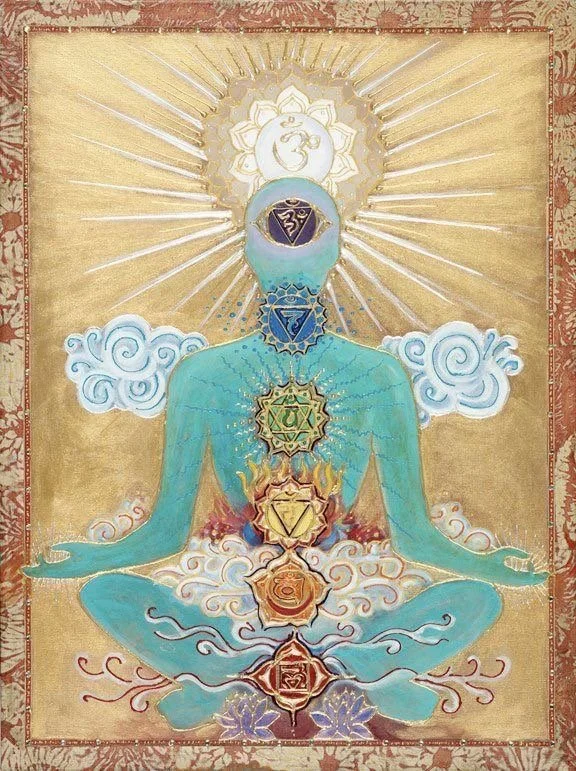
What is Ayurveda
Ayurveda is a Sanskrit term, and Sanskrit, the language of Ayurveda, is the oldest written language in existence.
The word Ayurveda is derived from the roots "Ayus" meaning life, and "Veda" meaning knowledge. Thus, Ayurveda translates to "the knowledge of life." Both 'knowledge' and 'life' require deeper exploration. True knowledge is not just the accumulation of facts; it is a profound understanding of truth. To truly know something is to become one with that knowledge—this is referred to as "direct perception."
Life, in the Ayurvedic sense, is more than just what sustains and energizes the body; it also includes what enlivens our consciousness. Life manifests in both a gross and subtle form. The gross form ceases with death, while the subtle form is eternal, carrying our karmic seeds from one lifetime to the next. Ayurveda, therefore, is the science of life, addressing both the physical and subtle aspects—body, senses, mind, and soul.

“Ayurveda says, make your food your medicine and let your medicine be your food.”
The central goals of Ayurveda are to:
Maintain health and prevent disease.
Guide us in using health as a foundation for spiritual enlightenment, longevity, and ultimate well-being.
Seek spiritual immortality through the pursuit of enlightenment, rather than physical immortality.
Hence, the ultimate aim of Ayurveda is to preserve health while enabling individuals to pursue their spiritual aspirations. As one embarks on the journey of healing through Ayurveda, they begin to understand that true health is deeply connected to lifestyle choices and a balanced state of mind. The journey toward creating an optimal lifestyle and cultivating inner peace is noble, yet challenging.
As health improves through conscious living and a peaceful mindset, life naturally expands. A harmonious lifestyle, combined with a calm and undisturbed mind, leads to the fullest extension of life. This state, known as high prana, not only nurtures life but also elevates consciousness. Therefore, the path to perfect health is inherently aligned with the path to enlightenment.

The 5 Elements of Ayurveda
AIR
ETHER
EARTH
WATER
FIRE
Ayurveda is much more than a science of disease prevention; it is a complete medical system focused on healing imbalances and disease in the body.
Like all medical sciences, Ayurveda addresses disease through understanding its cause, symptoms, and treatment. India's greatest Ayurvedic text, the Charaka Samhita, outlines these three essential components:
Etiology (“Nidana”): the study of causes
Symptomatology (“Samprapti”): the study of symptoms
Therapeutics (“Chikitsa”): the study of treatments
Health, in its most basic sense, is defined as the normal, functioning state of an organism, free from disease or abnormality—optimal functioning, well-being, and progress. While this functional view of health is valuable, Ayurveda offers a deeper, more holistic definition. The Sanskrit term for perfect health is Svastha, derived from Sva (Self) and Stha (established or solid). Therefore, Svastha means being "established in the Self."
This philosophical perspective enriches the understanding of health, connecting it to psychospiritual concepts. True health, in this view, arises when one is firmly anchored in their higher Self—the divine essence within. From this spiritual state, a person can overcome sensory indulgence and gain clarity on their Dharma (higher purpose in life). Perfect health emerges when there is harmony between one’s constitution and the environment, leading to choices that align with one's true nature.

“Your body is your temple, your food is your sacrifice.”
Ayurveda teaches that the root cause of disease lies in forgetting our true nature as spirit.
When we lose this awareness, we become identified with the ego—the sense of separation and individuality—and begin to live merely as sensory beings. This pursuit of sensory pleasure often leads to overindulgence, which disturbs the body’s doshas and results in imbalance and disease.
Ultimately, Ayurveda reveals that your health and healing lie in your hands. With its deep and rich history, Ayurveda has been guiding individuals on this path for centuries. The greatest determinant of your health is what you do consistently each day. Lifestyle changes are crucial to creating a balanced life that nurtures and supports you throughout your entire journey.









